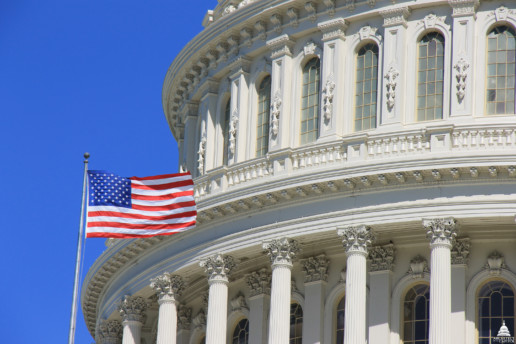Congress moves to push back effective date of new OT rules
Interesting article from HRMorning.com, by Tim Gould. It states that the effective date for new overtime rules could be pushed back from December 2017 to June 2017. This is significant for employers and employees alike, as they might be able to wait essentially another year for the law to pass. It will be beneficial for employers for the law to go into effect in June rather than December.
The efforts to push back the deadline for the new OT rules gained some more momentum this week, as Congress moved to enact a new law to extend the effective date to early next summer.
The House of Representatives passed the Regulatory Relief for Small Businesses, Schools and Nonprofits Act (H.R. 6094) on Sept. 27. The law would move the effective date of the new OT rules from Dec. 1 to June 1, 2017.
A similar measure was introduced in the Senate by Sen. James Lankford (R-OK).
Lankford and Rep. Tim Walberg (R-MI), lead sponsor of the House bill, are hoping the legislation will encourage the administration to delay the rule on its own, according to TheHill.com.
The legislative moves come on the heels of two lawsuits filed earlier in the week.
Twenty-one states joined in a federal lawsuit that charges the Obama administration with overstepping its authority in rewriting the rules, which raise the overtime salary threshold from $23, 600 to $47,500 per year. The suit claims the change will place an undue burden on state budgets.
Just hours after the states’ suit was filed, a similar suit was filed by the U.S. Chamber of Commerce and other business groups. Both lawsuits were filed in the U.S. District Court for the Eastern District of Texas.
There’s no telling what might happen in the two Texas cases, but it’s highly unlikely the Congressional proposal will pass. President Obama has promised to veto the legislation.
See the original article Here.
Source:
Gould, T. (2016 September 30) Congress moves to push back effective date of new OT rules. [Web blog post]. Retrieved from address https://www.hrmorning.com/congress-moves-to-push-back-effective-date-of-new-ot-rules/
Ninth Circuit Holds that Cash Payments Made in Lieu of Health Benefits Must Be Included in Regular Rate for Overtime Purposes Under FLSA
A ruling from the Ninth Circuit Court may impact your cash benefit offerings. See the article below for more insight.
Original Post from ThinkHR.com on July 7, 2016
On June 2, 2016, the Ninth Circuit Court of Appeals, in Flores v. City of San Gabriel, held that the City of San Gabriel willfully violated the Fair Labor Standards Act (FLSA) by failing to include cash payments to police officers for unused medical benefits allowances when calculating their regular rate of pay, which ultimately resulted in a lower overtime rate and an underpayment of overtime.
In Flores, the City provided a flexible benefits plan to its employees under which the City furnished a designated monetary amount to each employee to be used for purchasing medical, vision, and dental benefits. While employees were required to use a portion of these funds to purchase vision and dental insurance, employees with access to alternative medical coverage (for example, through a spouse) could decline to use the remaining benefits and opt for a cash payment instead. The cash payment would then be added to the employee’s regular paycheck. The City did not consider the value of that cash payment when calculating the employees’ regular rate of pay and resulting overtime rate. A group of current and former officers sued, claiming they were underpaid for overtime hours worked because the cash provided to employees in lieu of benefits should have been used in calculating their overtime rate.
The primary issue was whether the City’s cash-in-lieu payments were properly excluded from the employees’ regular rate of pay. The Ninth Circuit held that cash payments made to employees in lieu of health benefits must be included in the hourly “regular rate” used to compensate employees for overtime hours worked. The City argued that the cash-in-lieu payments were not payments made as compensation for hours of employment and were not tied to the amount of work performed for the employer, and therefore were excludable under 29 U.S.C. § 207(e)(2) from the regular rate of pay as are payments for leave, travel expenses, and other reimbursable expenses. The Ninth Circuit disagreed, finding the payments were “compensation for work” even if the payments were not specifically tied to time worked for the employer.
The Ninth Circuit also rejected the City’s argument that its cash in lieu of benefit payments were properly excluded pursuant to § 207(e)(4) because the payments were paid directly to employees. Section 207(e)(4) excludes from the regular rate of pay “contributions irrevocably made by an employer to a trustee or third person pursuant to a bona fide plan for providing old age, retirement, life, accident, or health insurance or similar benefits for employees.”
Note: This decision only affects those employers located in the Ninth Circuit. The Ninth Circuit includes Alaska, Arizona, California, Hawaii, Idaho, Montana, Nevada, Oregon, Washington, and Guam.
See Original Article Here.
Source:
Unknown (2016, July 7). Ninth Circuit Holds that Cash Payments Made in Lieu of Health Benefits Must Be Included in Regular Rate for Overtime Purposes Under FLSA [Web log post]. Retrieved from https://www.thinkhr.com/blog/hr/ninth-circuit-holds-that-cash-payments-made-in-lieu-of-health-benefits-must-be-included-in-regular-rate-for-overtime-purposes-under-flsa/

